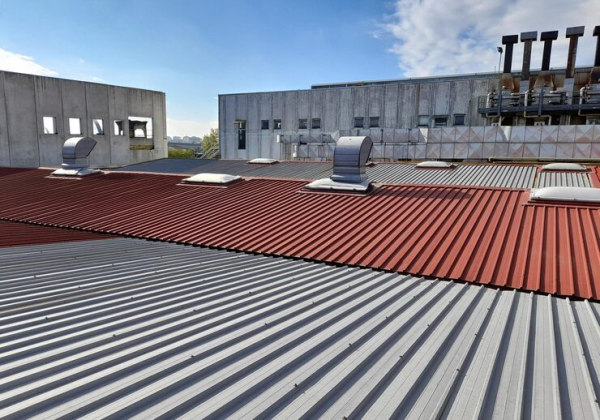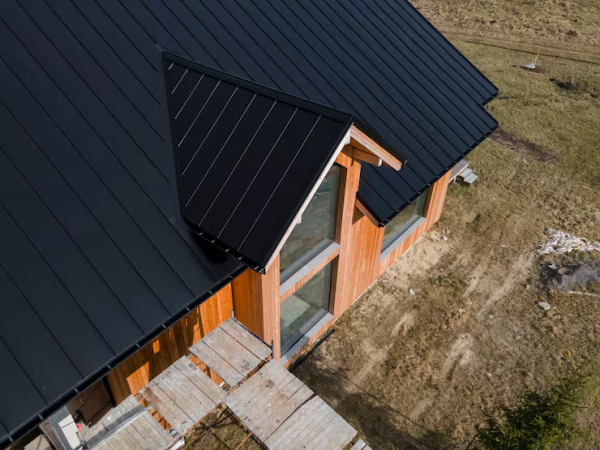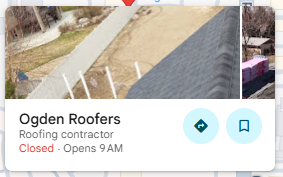The Difference Between Commercial Roofing and Residential Roofing
Residential and commercial roofs may serve the same purpose—protecting buildings from the elements—but they differ greatly in design, materials, installation, maintenance, and cost. Residential roofs typically use sloped designs with shingles, tile, or metal, prioritizing both function and curb appeal, while commercial roofs are often flat, built to support heavy equipment, and require specialized waterproofing. Installation for homes is usually quicker and less complex, whereas commercial projects demand advanced machinery, skilled crews, and higher costs. Maintenance also varies, with residential roofs needing simpler repairs and commercial roofs requiring frequent inspections to prevent leaks and damage. Lifespans depend on materials, but both benefit from professional care. Choosing the right roofing contractor—one experienced in either residential or commercial systems—is crucial to ensuring quality, durability, and long-term protection for your investment.
Ogden, Utah, United States, 25th Sep 2025 – When it comes to protecting your property, the roof is the first line of defense. Whether you’re a homeowner or a business owner, your roof keeps your building safe from harsh weather, water damage, and structural problems. But while all roofs serve the same basic purpose, residential roofing and commercial roofing are actually very different.
Many people don’t realize that the design, installation, repair, and maintenance needs of a commercial roof can be completely different from a home’s roof. From construction and materials to maintenance and cost, there are distinct differences between the two.
If you’re considering a roof repair or roof replacement, it’s important to understand these differences so you can work with the right roofing company for your needs. In this blog, we’ll break down the major differences between commercial and residential roofing so you know exactly what to expect.

Construction of Residential vs. Commercial Roofs
One of the most significant differences between residential and commercial roofing is how they are built.
Residential roofing typically uses sloped designs that allow rainwater, snow, and debris to flow off easily. This helps prevent pooling water and makes it easier to maintain over time. Most homes use shingles, tile, or sometimes metal for roof installation. The slope also provides better ventilation, which protects the attic and living spaces below.
Commercial roofing, on the other hand, is usually flat or has a very low slope. This design is more practical for large buildings, but it creates new challenges. A flat roof needs special materials and installation techniques to handle water pooling. In addition, commercial roofs often have to hold large, heavy equipment such as HVAC units, generators, or solar panels. Because of this, they require stronger support systems and advanced waterproofing.
The difference in construction means that commercial roofs often take longer to install, require more specialized labor, and involve higher costs compared to residential roofing.
Materials Used in Commercial vs. Residential Roofing
The choice of materials is another key distinction between the two.
For residential roofing, the most common material is asphalt shingles. They are affordable, attractive, and available in a wide range of colors. Other options include:
- Tile roofing (clay or concrete) for durability and style.
- Metal roofing for longevity and resistance to harsh weather.
- Wood shakes or shingles for a rustic look.
Residential roofs prioritize aesthetics as much as functionality, since curb appeal is important for homeowners.
For commercial roofing, functionality comes first. Because these roofs are larger and flat, they need materials that can handle constant exposure to the sun, pooling water, and heavy equipment. Some of the most common commercial roofing materials include:
- EPDM (rubber roofing) – Durable, weather-resistant, and cost-effective.
- TPO and PVC roofing membranes – Energy-efficient and resistant to chemicals.
- Modified bitumen roofing – Flexible and durable for different climates.
- Built-up roofing (BUR) – Multiple layers of tar and gravel for maximum protection.
Commercial roofs may also include reflective coatings or energy-efficient designs to lower energy costs for large buildings.
Roof Installation Process
The installation process differs greatly depending on whether it’s residential or commercial roofing.
Residential roof installation is usually faster and less complex. A standard home roof replacement can be completed within a few days, depending on size and materials. Roofers can often work with simple equipment and smaller crews to complete the job efficiently.
Commercial roof installation, however, is a much larger project. The flat design, heavy equipment loads, and massive surface area make it more time-consuming. The process requires advanced machinery, highly skilled roofers, and often multiple phases of work. Large buildings may even need roofing done in sections to minimize disruption to daily business operations.
Roof Repair and Maintenance
Every roof requires maintenance, but the needs for residential and commercial roofing differ significantly.
Residential roof repair typically involves fixing shingles, sealing small leaks, replacing flashing, or cleaning gutters. Maintenance is usually straightforward and can be handled during seasonal checkups.
Commercial roof repair, however, can be much more complex. Flat roofs are prone to water pooling, leaks, and membrane punctures from equipment or foot traffic. Because of the size of commercial buildings, detecting and repairing roof damage takes more time and specialized skills. Preventive maintenance is critical, and many business owners schedule regular inspections to avoid costly emergency repairs.
Lifespan of Residential and Commercial Roofs
The lifespan of your roof depends on the materials used, the quality of the installation, and how well it is maintained.
- Residential roofs typically last 20–30 years with asphalt shingles, while tile or metal can last 50 years or more.
- Commercial roofs can last anywhere from 20 to 40 years depending on the material, but flat roofs often require more frequent inspections and maintenance.
Both types benefit greatly from professional care and routine maintenance by a trusted roofing company.

Cost Differences Between Residential and Commercial Roofing
Cost is often one of the first concerns for property owners.
Residential roof replacement or repair is usually more affordable since the materials are less expensive and the roofs are smaller. A typical roof replacement for a home may range from a few thousand dollars depending on the size, slope, and chosen material.
Commercial roofing is a much larger investment. The costs are higher due to the scale of the project, the specialized materials, and the need for advanced installation techniques. In addition, business owners often invest in energy-efficient and durable materials to protect their long-term investment.
Roofing Company Expertise
Not all roofing companies handle both residential and commercial projects. Because the needs are so different, you need to make sure you’re hiring a roofing contractor with the right experience.
- If you’re a homeowner, you’ll want a roofing company that specializes in shingle, tile, or metal roof installation and repair.
- If you’re a business owner, you’ll need a roofing contractor with expertise in flat roof systems, waterproofing, and commercial-grade materials.
Choosing the wrong contractor can lead to costly mistakes. That’s why working with a trusted local roofing company like Ogden Roofers ensures you get the right team for your project.
Why Understanding the Difference Matters
Knowing the difference between commercial and residential roofing is more than just a technical detail—it can save you time, money, and stress. For example:
- A business owner with a leaking flat roof needs specialized commercial roof repair, not a general residential fix.
- A homeowner considering roof replacement should focus on materials that provide both protection and curb appeal.
- Hiring the right roofing company ensures you get a roof designed to last, installed correctly, and maintained properly.
Making informed decisions about your roof will protect your property and give you peace of mind.
Conclusion: Protect Your Investment with the Right Roofing Company
While both residential and commercial roofs serve the essential purpose of protecting your property, they differ in design, materials, installation, maintenance, and cost. Residential roofing emphasizes curb appeal and comfort, while commercial roofing focuses on durability, waterproofing, and supporting heavy equipment.
If you’re facing a roof repair, roof replacement, or new roof installation, choosing the right roofing company makes all the difference. At Ogden Roofers, we specialize in both residential and commercial roofing solutions. Our team understands the unique needs of each type of roof and delivers quality craftsmanship built to last.
Don’t leave your property unprotected. Call Ogden Roofers today at +1 801-829-9651 to schedule your consultation. Let us help you safeguard your investment with expert roofing services you can trust.
Ogden Roofers
4287 Harrison Blvd C, Ogden, UT 84403, United States
+18018299651
Company Details
Organization: Ogden Roofers
Contact Person: Ogden Roofers
Website: https://www.ogdenroofers.com/
Email: Send Email
Contact Number: +18018299651
Address: 4287 Harrison Blvd C, Ogden, UT 84403, United States
Address 2: 4287 Harrison Blvd C, Ogden, UT 84403, United States
City: Ogden
State: Utah
Country: United States
Release Id: 25092534431

